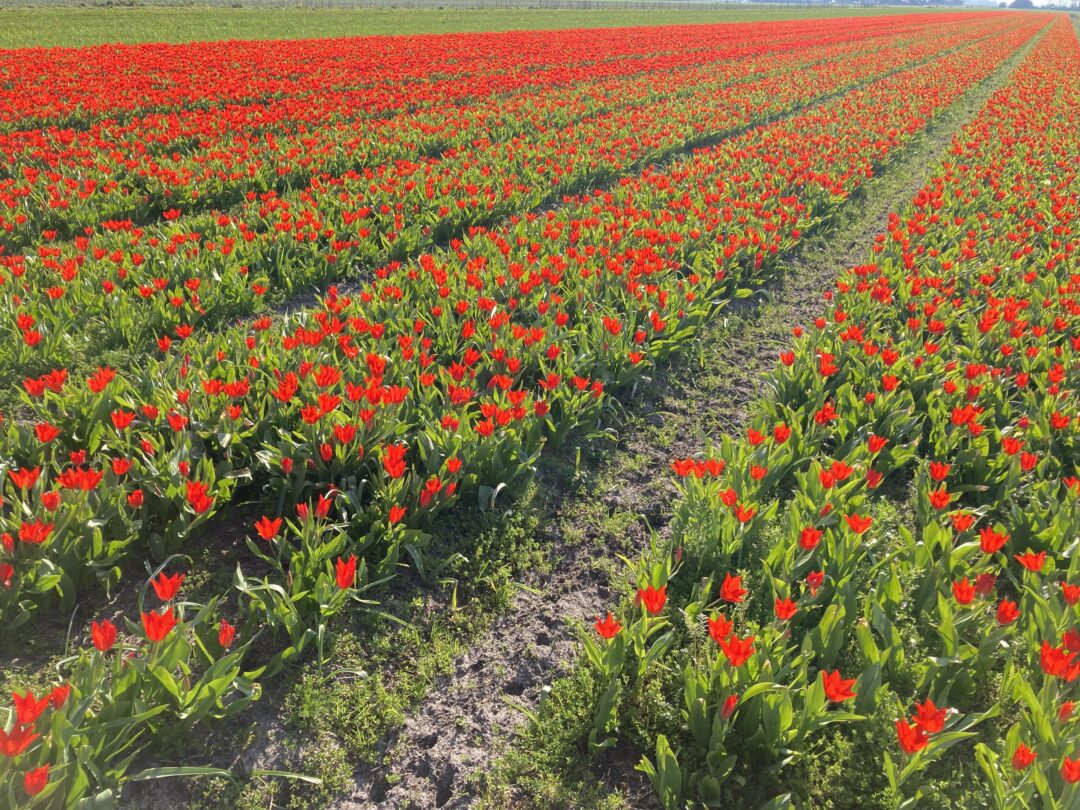Diary (1st Aug 2024)

It is certain that John is the one who works the longest hours during the summer harvest in this organic bulb farm. He always seems to be having fun. Together with Johanna, he is the one of the owners of this organic bulb farm and work from sunrise in the morning until sunset at night, and even on Saturdays.
In the mornings John welds and repairs machines that need repair, prepares shipments in front of the computer, etc., and from 7.30am, when everyone starts working, he drives the tractor to harvest the bulbs and moves the bulb boxes with the forklift truck. Johanna is in charge of PR, marketing, the online shop and accounting, while John works in the workshop and fields. Now that it is summer, the bulbs are harvested, but the work is done all year round: preparing the soil for planting the bulbs, preparing the soil with green manure, making bokashi, planting the bulbs, digging up the bulbs and preparing them for shipping.
John and Johanna see the big picture of how bulbs are produced. The bulbs themselves are the result of a day-by-day process, on top of which the flowers bloom.
This organic bulb farmer owns 70 hectares of land and produces bulbs, which is not large compared to conventional bulb farmers in the Netherlands. Here, it cannot happen that management does not visit the field. The seasonal migrant workers are not exploited with ‘’zero-hour employment contracts‘’ or ‘package deals’, as they are reported in the media. Seasonal workers are paid on the basis of contracts with allowances for holidays and sick leave. The minimum wage in the Netherlands for 2024 is € 13.68 (gross) per hour, but this organic bulb farmer pays € 12.70 (net) per hour, which is € 16.51(gross) per hour when taking into consideration a tax of about 30 per cent.
This wage is the price paid for the repetitive, single task of basically sorting bulbs while listening to blaring music. The bulbs are organic bulbs, no pesticides or chemicals are used and no harm is done to the human body or the environment during the work.
Having been able to work here for a short period of time this time, I felt that it is great that there is no damage not only to the environment, but also to the health of the seasonal workers. I usually buy organic produce, not for taste, but to reduce the environmental footprint. To be honest, I have never felt that the vegetables in the Netherlands taste better because they are organic. However, the advantage of being organic is not only that it is good for the environment, but also that there are no health risks for workers in jobs that are generally considered hard.